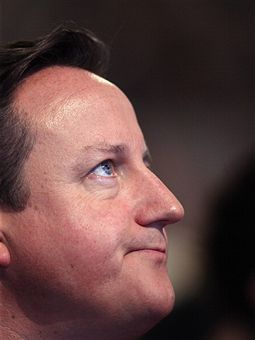 Today’s papers resound with the news that Theresa May is resisting Liberal Democrat opposition to close
the loophole over the “right to family life”, Article 8 of the European Convention on Human Rights. This change, it is argued, will ensure that foreign criminals are deported so that
the courts protect, as David Cameron put it, “the United Kingdom”. The announcement is a carefully choreographed step
to differentiate the Tories from the Liberal Democrats. Dr Evan Harris, the self-anointed king of the Lib Dems in exile, told the BBC this morning:
Today’s papers resound with the news that Theresa May is resisting Liberal Democrat opposition to close
the loophole over the “right to family life”, Article 8 of the European Convention on Human Rights. This change, it is argued, will ensure that foreign criminals are deported so that
the courts protect, as David Cameron put it, “the United Kingdom”. The announcement is a carefully choreographed step
to differentiate the Tories from the Liberal Democrats. Dr Evan Harris, the self-anointed king of the Lib Dems in exile, told the BBC this morning:
‘It’s actually a useful tool because it enables Nick Clegg to say the Human Rights Act (HRA) is here to say and David Cameron can say, “Look if we were in Government then we would be able to get rid of the Human Rights Act”.’
In general, the Tories are at pains not to kick the Liberal Democrats at this conference, but the Human Rights Act is a well-chosen exception to rouse the conference hall. This titillating move will not satisfy every activist, but, as Paul Goodman says, it is a start.
In truth, this is all a bit of a smokescreen because the coalition’s internal skirmish will be eclipsed by a full scale battle in Strasbourg if this goes ahead. The Tories’ argument rests on David Cameron’s view that the right to a family life is not inalienable under the European Convention. The Immigration Law Practioners’ Association disagree. A spokesman for the association said that all rights are inalienable, what Cameron means is that Article 8 is not absolute. For example, Subsection 2 of Article 8 says:
‘There shall be no interference by a public authority with the exercise of this right except such as is in accordance with the law and is necessary in a democratic society in the interests of national security, public safety or the economic well-being of the country, for the prevention of disorder or crime, for the protection of health or morals, or for the protection of the rights and freedoms of others.’
Parliament might legislate to tighten this area of law, citing subsection 2 as its justification. But, deportees would probably still appeal to the British courts, and all the way to Strasbourg if necessary, because “national security, public safety or the economic well-being” are nebulous concepts next to the physical fact of a family living in Britain. The courts could then find the British government’s position to be incompatible with the clearly defined Convention. The spokesman from ILPA warned that May’s plan unveiled today is “courting litigation”, which could prove to be very expensive, with costs running into the tens of millions in addition to large compensation charges.
So, taking action without needlessly exposing the taxpayer will depend on obtaining agreement in the Council of Europe, the body responsible for the European Court of Human Rights and the Convention. The Conservatives are serious about reforming the Human Rights Act and the ECHR, and the government says it intends to use its forthcoming chairmanship of the Council of Europe to force change, which suggests that today’s shouting is mostly just political posturing.






Comments